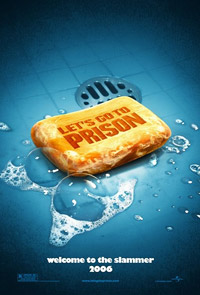Barry Nelson (1917–2007) was an American actor.
Barry Nelson may also refer to:
- Barry Nelson (rugby league) (1932–2021), Australian prop in 1950s and 1960s
- Barry Nelson (basketball) (born 1949), American center in 1971 NBA Draft
Barry Nelson (1917–2007) was an American actor.
Barry Nelson may also refer to:

Barry Morris Goldwater was an American politician, statesman, businessman, United States Air Force officer, and author who was a five-term Senator from Arizona and the Republican Party nominee for president of the United States in 1964. Goldwater is the politician most often credited with having sparked the resurgence of the American conservative political movement in the 1960s. Despite his loss of the 1964 presidential election in a landslide, many political pundits and historians believe he laid the foundation for the conservative revolution to follow, as the grassroots organization and conservative takeover of the Republican party began a long-term realignment in American politics helped to bring about the "Reagan Revolution" of the 1980s. He also had a substantial impact on the libertarian movement.

The 1964 United States presidential election was the 45th quadrennial presidential election. It was held on Tuesday, November 3, 1964. Incumbent Democratic United States President Lyndon B. Johnson defeated Barry Goldwater, the Republican nominee. With 61.1% of the popular vote, Johnson won the largest share of the popular vote of any candidate since the largely uncontested 1820 election.

Barry Eugene Carter, better known by his stage name Barry White, was an American singer-songwriter, musician, record producer and composer. A two-time Grammy Award–winner known for his bass-baritone voice and romantic image, his greatest success came in the 1970s as a solo singer and with The Love Unlimited Orchestra, crafting many enduring soul, funk, and disco songs such as his two biggest hits: "You're the First, the Last, My Everything" and "Can't Get Enough of Your Love, Babe".

Wag the Dog is a 1997 American political satire black comedy film produced and directed by Barry Levinson and starring Dustin Hoffman and Robert De Niro. The screenplay centres on a spin doctor and a Hollywood producer who fabricate a war in Albania to distract voters from a presidential sex scandal. The screenplay by Hilary Henkin and David Mamet was loosely adapted from Larry Beinhart's 1993 novel, American Hero.

Shadow of the Thin Man is the fourth of the six The Thin Man films. It was released in 1941 and was directed by W. S. Van Dyke. It stars William Powell and Myrna Loy as Nick and Nora Charles. Also, in this film their son Nick Jr. is old enough to figure in the comic subplot. Other cast members include Donna Reed and Barry Nelson. This was one of three films in which Stella Adler appeared.
John Barry may refer to:
Nelson may refer to:

Barry Manilow is an American singer-songwriter, arranger, musician, producer and actor, with a career that has spanned more than 50 years. His hit recordings include "Could It Be Magic", "Mandy", "I Write the Songs", "Can't Smile Without You" and "Copacabana ".

Barry Nelson was an American actor, noted as the first actor to portray Ian Fleming's secret agent James Bond.

John Wesley Shipp is an American actor known for his various television roles. He played the lead Barry Allen on CBS's superhero series The Flash from 1990 to 1991, and Mitch Leery, the title character's father, on the drama series Dawson's Creek from 1998 to 2001. Shipp has also played several roles in daytime soap operas including Kelly Nelson on Guiding Light from 1980 to 1984, and Douglas Cummings on As the World Turns from 1985 to 1986. He portrays Barry Allen's father, Henry Allen, Jay Garrick/Flash and Earth-90 Barry Allen/Flash on the current series entitled The Flash on the CW network.
The 1964 National Convention of the Republican Party of the United States took place in the Cow Palace, Daly City, California, from July 13 to July 16, 1964. Before 1964, there had been only one national Republican convention on the West Coast, the 1956 Republican National Convention, which also took place in the Cow Palace. Many believed that a convention at San Francisco indicated the rising power of the Republican Party in the west.

Barry Joseph Goldberg is an American blues and rock keyboardist, songwriter, and record producer.

The 1960 National Convention of the Republican Party of the United States was held in Chicago, Illinois, from July 25 to July 28, 1960, at the International Amphitheatre. It was the 14th and most recent time overall that Chicago hosted the Republican National Convention, more times than any other city.

Let's Go to Prison is a 2006 American comedy film directed by Bob Odenkirk and starring Dax Shepard, Will Arnett and Chi McBride. The film was loosely based on the non-fiction book, You Are Going to Prison by Jim Hogshire. It was released in theatres November 17, 2006.
The Party's Over may refer to:

Greatest Country Hits contains Glen Campbell's last four Country top ten hits from the 1980s plus some other single and album tracks taken from his 1990 Liberty album Walkin' in the Sun together with three of his biggest hits from 1975–1977. His earliers hits are compiled on another Curb release called Best of the Early Years.
Band of Brothers may refer to:
Lyall Scott Barry was a school teacher and inspector, and wrote a history of the Waimumu area in Southland. As a swimmer he won two medals at the 1950 British Empire Games.

Nakia Reynoso, known professionally as Nakia, is an American musician, singer-songwriter and actor living in Austin, Texas. He is a native of Fort Payne, Alabama.

Oliver Nelson Plays Michelle is an album by American jazz composer, arranger and saxophonist Oliver Nelson, featuring solos by Nelson and Phil Woods, recorded in 1966 for the Impulse! label.